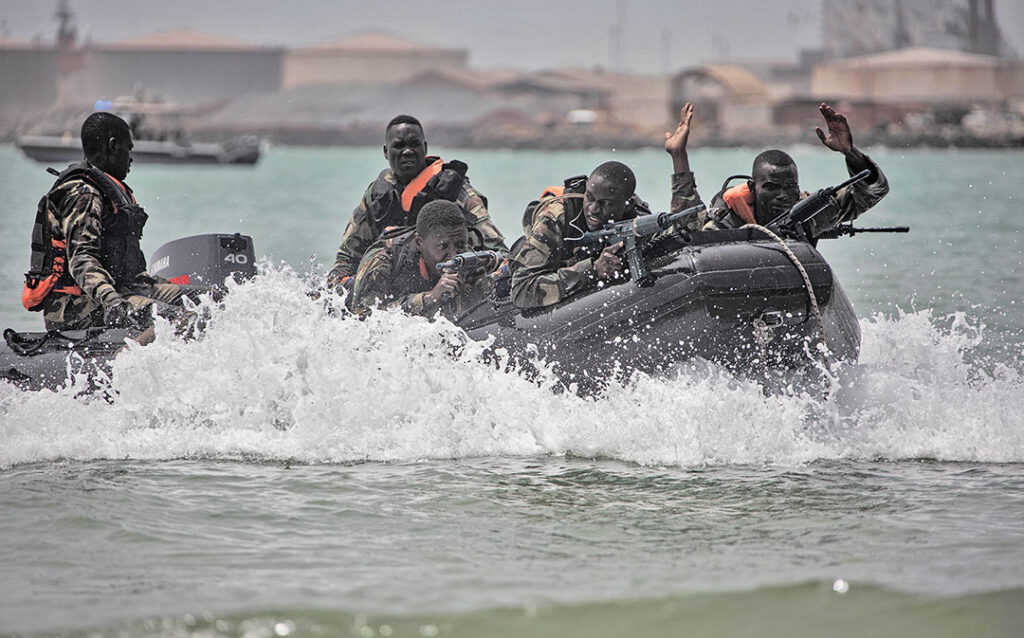As world leaders look to jump-start economic growth, many are turning to the so-called blue economy. African nations are poised to benefit from this focus on maritime commerce and security.
The continent has 38 coastal countries and sits at the intersection of major trade routes connecting Europe, Asia and the Americas. By 2030, Africa’s ocean economy is expected to double compared to 2010 and employ millions more people.
But this growth is not guaranteed. Piracy and armed robbery at sea derail trade. Illegal fishing plunders valuable natural resources. Pollution destroys marine ecosystems and scares away tourists.
Security professionals know the high stakes and have begun to notch some victories. In 2021, pirate attacks sank to their lowest level in 27 years. Attacks dropped by more than half in the Gulf of Guinea, which had been the world’s worst piracy hot spot. In the Gulf of Aden and off the coast of Somalia, piracy dropped even further with only one recorded attack.
This success is due to close cooperation between coastal nations and international partners. Nations are investing in maritime domain awareness tools to provide a better picture of the vessels operating off their coasts. They also are sharing information so vessels cannot cross maritime borders to evade capture or exploit areas of weak enforcement. Some are updating laws to make sure pirates can be prosecuted once they are caught.
Countries must apply this same resolve to other threats. Illegal fishing costs the continent billions of dollars each year. Large foreign trawlers are decimating fisheries with harmful and unsustainable practices. Stopping it will require high-tech surveillance and stronger laws. Likewise, narcotics trafficking in West Africa has returned to levels not seen since the mid-2000s. Coastal nations targeted by traffickers are facing rising levels of violence, corruption and addiction. Reversing this trend will require international intelligence-sharing and domestic cooperation among military, police and government agencies.
None of this will be easy. For the continent’s navies to defeat maritime threats, they must commit to careerlong training, technological superiority, and maintaining and expanding their fleets. But the payoff will be worth the effort. Securing the seas opens the door to new investments. Protecting marine ecosystems today offers hope for tomorrow.

